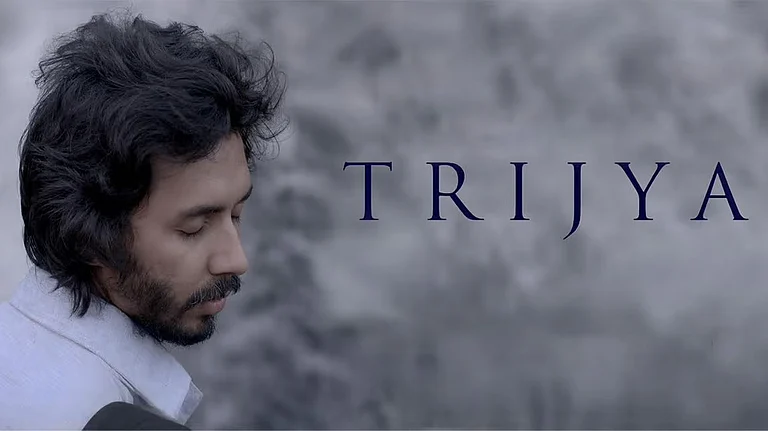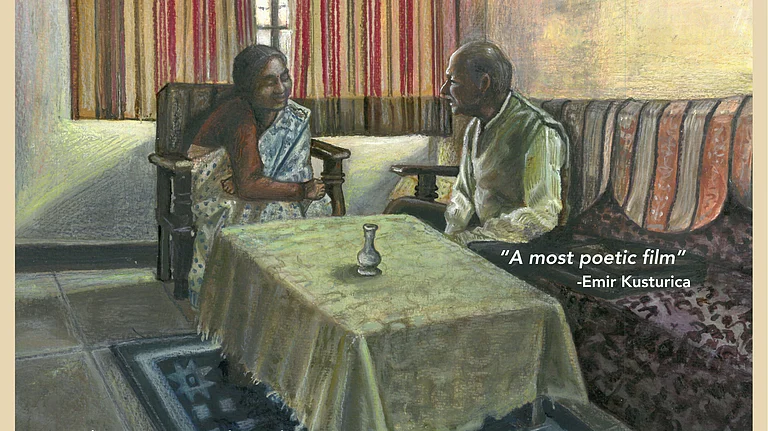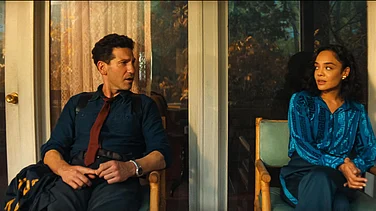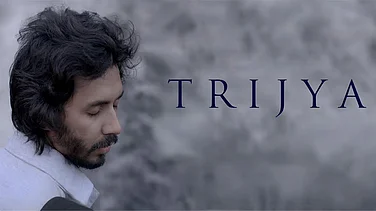Vikramaditya Motwane’s screen-life movie CTRL begins on a snazzy note. Nella Awasthi (Ananya Panday) and Joe Mascaren has (Vihaan Samat) are an enviable, picture-perfect couple, who also milk their relationship for social media popularity. The film’s entry into the content creator couple’s relationship, popping up as a sparkling series of snapshots, is smooth and confident. The opening is warm, mushy, poking at the batshit stuff the couple have to post as influencers. They get all the traction they need to cushion an affluent lifestyle. Brands queue up for partnerships. Everything seems lovely and perfect until, like all happy illusions, the bubble bursts.
On their fifth anniversary, as she’s about to surprise Joe while keeping a livestream of followers glued to her, Nella discovers him cheating on her. Her meltdown, their breakup naturally become fodder for memes and roasts by the vlogger community, feeding the online beast. Sneha Khanwalkar’s eclectic music choices, playfully throwing in a cheeky rap song here, a softer melody there, distil the film’s fractured online landscape.
Post-breakup, Nella has to confront and make sense of her own individuality. How can she sustain her posh lifestyle, social capital when her brand ‘NJoy’ literally hinges on coupledom? Amidst a flurry of trolling, she takes recourse to an AI software CTRL. She chooses a ‘comic flirt’ avatar of the AI assistant, Allen (voiced by Aparshakti Khurana), lured by the promise he can erase Joe’s digital footprint from her life.

As flashy and riveting CTRL is, the visual style isn’t held in good stead by the screenplay. Motwane constantly surprises, jazzing up the look and editing with peppy filters. But his voice gets muffled within the folds of the standard-template screen-life thriller. There’s a palpable need to make situations dynamic and pacey. Motwane wants to address the big tech, the quick, insidious tentacles corporations and other behemoths have unleashed not just in our daily life but also our emotional alignment. Even though the film doesn’t abandon Nella’s perspective, it can’t help zoom out to the big picture. In both instances, Motwane’s handling is unsteady. As Nella freely gives the go-ahead to Allen to invade her life because she finds emotional support in him, we know where this is all going.
None of the observations the film makes are exactly pointed.The hunger for affirmation and validation which social media seems to dole out only to suck us in for a more complex bargain has no cutting-edge thematic appeal. On a discursive level, CTRL is a retread, a cookie-cutter encapsulation of the precarity in our data-driven existence. There are no fresh insights here that scald with intensity. The commentary tends to be broad, divested of angles that can make the all-encompassing reach of conglomerates chill anew. So the big jolt of horror which strikes Nella doesn’t land any punch. Instead you question why someone as smart and innovative as Motwane falls back on an incensed monologue by Joe to spring enlightenment.
While Joe rails and rants about the wide-sweep nexus of technology and power magnates, and how they drill toxic dependency into every fibre of our lives, the film becomes jaded and formulaic in its enquiry. Samat tries to dredge out all the earnest anguish from the situation but he is tasked with making the stuff of basic intelligence sound like ground-breaking revelations. This expository dump of a scene single-handedly crashes the film. The scene pitches itself at a rousing, super-disturbing level but the obviousness of the rant undoes its desired emotional effect. Nella has been in the social media game, cultivating her credentials and climbing the food chain for five years already when the film opens. Yet the film paints her as an airhead with no shades. She’s savvy in cracking the loop of verification and recovery emails but oblivious to everything else. However, Panday keeps you rapt for as long as she can, balancing the absolutely unsuspecting, Gen-Z fluff alongside refreshingly understated moments of panic and realisation.
The rupturing of Nella’s naivete, her pained, needy return to the viciousness of the digital hustle even after being scorched—CTRL just skims these points of transition. She awakens to the unavoidable cost of modern life entrenched in technology, separating herself from the bind of a digital life only for a while. Motwane plumbs the melancholy of her utter disconnect from those around her if technology isn’t a conduit. This is realised with terrific subtlety in the final stretch, which only makes you wish the rest of CTRL had it as well. Once we step outside and away from the screen, Pratik Shah’s cinematography, flecked in dour blue and yellow palettes, immediately grips the loss and isolation of the character. But it’s too little, too late.

The language of CTRL too strains to locate and distinguish Nella’s personality from generic influencer-speak. Sumukh Suresh’s dialogues have the conviction of zingers and there’s no denying a lot of their organic, closely observed wit. Yet, a curious distance exists between the vocabulary Suresh lends to Nella and the character’s discernible personality. Yes, we get Nella has built her aspirational life around other influencers, fine-tuning her projection to slip into a fantasy of a sleek, swanky future. Her life spills over with borrowings. It’s how she has escaped what she views as a narrow, limited existence with her parents and family in Delhi, carving out an upscale Mumbai life. But the film stays aloof to Nella’s trajectory.
There are too many contrived omissions in the screenplay; it gets tougher to invest emotionally in the character’s escalating crisis by dint of the ease with which major steps in her journey are summed up in a montage highlight. So when Nella rebuilds her brand with Allen’s supervision, it all flies by quick and casually. No tension, no contradictions get a stab in the film, once you put aside the taut cutting by Jahaan Noble. Though the slick design steers you through, CTRL fumbles in weaving in the macro. Espionage works if the narrative offers peeks into intricacies within. As Motwane spins the plot towards larger game plans of companies branching out across sectors and things turn progressively murkier, CTRL lapses into a nondescript thriller.





























